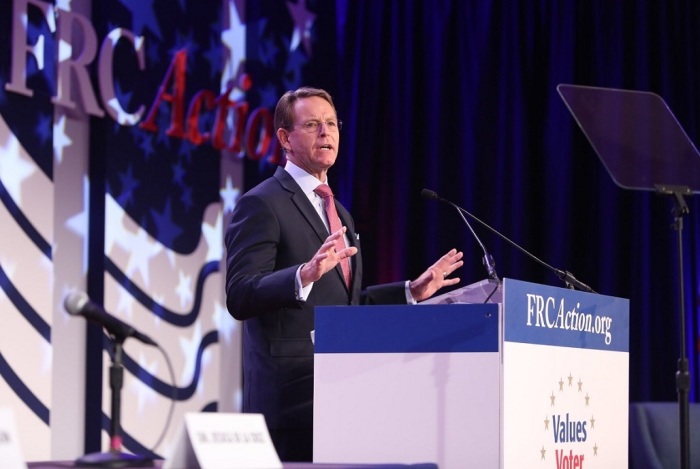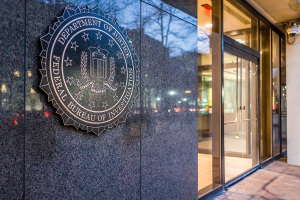Tech company terminates agreement with Christian group over SPLC 'hate' group label
MobileCause to review practice of relying on SPLC to determine which nonprofits it won't service

A California-based fundraising software company that serves nonprofits will no longer provide service to the national Christian conservative activist organization Family Research Council, citing the Southern Poverty Law Center’s listing of the organization as an anti-LGBT “hate” group.
But after pushback to its decision, MobileCause informed The Christian Post on Thursday that it will review its policy of referring solely to the far-left SPLC to determine which nonprofits it won't work with.
FRC announced Wednesday that it was informed by MobileCause CEO Victor Limongelli that the text service provider agreement between the two entities was to be terminated one hour before the organization was set to host its Pray Vote Stand broadcast as part of its 2020 voter turnout initiative.
The organization sought to use MobileCause to send out text messages to thousands of supporters during the event.
According to a statement released by the advocacy group, the termination was based on the organization’s religious views and “prevented the broadcast from reaching thousands of Christian voters with information about the 2020 election.”
Tony Perkins, FRC president and a leading conservative evangelical activist in Washington, said that the termination represents “another example of big tech censorship.”
He accused MobileCause of discriminating against his organization by censoring “those they disagree with.”
“Is it a coincidence that a big tech company pulled the plug on us one hour before the second installment of one of our most extensive evangelical voter education and mobilization efforts in this election cycle?” Perkins asked. “The big tech agenda is beyond obvious. MobileCause views evangelicals and conservatives as a political enemy that must be silenced, and so it timed its religious discrimination for maximum effect.”
CP reached out to MobileCause for comment on FRC’s claims. In response, the company explained that it does not work with organizations listed by the SPLC as a "hate group."
"MobileCause works with thousands of nonprofit organizations across the ideological spectrum. We have followed a very simple, straightforward practice. First, is the organization a nonprofit? We only work with nonprofits. Second, is the organization listed as a 'hate group' by the Southern Poverty Law Center (SPLC)? If so, we don’t work with the organization," a statement from MobileCause explains.
"When MobileCause realized that the Family Research Council was listed as a 'hate group' by the SPLC, we followed our practice and terminated the relationship."
A spokesperson for FRC told CP that the organization was in the third year of its agreement with MobileCause and the cancellation one hour before the event did not leave FRC with enough time to switch to a new vendor.
"The Left's determination to silence voices with which they disagree should make clear to every evangelical voter what is at stake in this election and why they need to pray, vote, and stand!” Perkins argued. “Big tech, Hollywood, and the elites intend to decide this election, and they will resort to religious discrimination, censorship, and bullying to get that mission accomplished. We cannot, and we must not, allow them to succeed.”
FRC, along with dozens of other Christian and conservative organizations, have been labeled by the SPLC — a far-left civil rights legal organization — as “hate” organizations that are described by terms such as “anti-LGBT,” “anti-immigrant,” “anti-Muslims” and many others. Critics contend that SPLC's "hate" designation contributes to the "smearing" of conservative groups with "false charges of bigotry."
The SPLC “hate” label almost turned deadly for FRC when a gunman shot up the FRC headquarters in Washington, D.C. in 2012 and later told FBI agents that he saw FRC on the SPLC website before targeting its location and wounding a security guard. He told investigators that he wanted to “kill as many as possible.”
In its statement to CP, MobileCause said that it was not previously aware of criticism SPLC has received toward its use of the "hate" label or the 2012 FRC shooting.
"We have been referencing the SPLC site as a readily and publicly available list, but given the new information that we’ve learned, we’re going to undertake an analysis of the SPLC list and the criteria it uses, and then make a determination as to whether we should rely solely on its list," the statement explains.
Troy Miller, CEO of the National Religious Broadcasters, said in a statement that despite its legacy as a civil rights group that has stood in opposition to white supremacist groups, the SPLC has "devolved" and "become a hate group itself."
“SPLC is engaged in harmful defamation and vilification of mainstream conservative organizations," Miller said. "Media and tech companies such as MobileCause need to stop relying upon SPLC’s inflammatory decrees.”
As reported by the Christian Broadcasting Network, MobileCause explained in a letter that it was warned on Aug. 27 that it received nearly 100 complaints of spam. However, an FRC spokesperson explained to the outlet that FRC was not notified about any spam related concerns until its agreement was terminated.
Miller stressed that MobileCause’s action against FRC is another indication of the power tech companies' hold to thwart the messaging of conservatives.
NRB, an association of which FRC is a member of, has documented and monitored what it calls “anti-Christian censorship” and free speech violation on the internet for the past 10 years.
“Just like that, one company was able to prevent a broadcast with information about the 2020 election from reaching thousands of Christian voters,” Miller explained. “Tech companies are pushing conservatives out of the public square and silencing them under the guise of ‘hate speech’ moderation. In reality, they are suppressing voices with which they disagree.”
In 2017, the leading charity rating website GuideStar added “hate” labels to the profiles of 46 conservative nonprofits, citing SPLC. After the backlash to their reliance on the SPLC "hate" designation, GuideStar removed the labels from the conservative groups.
Follow Samuel Smith on Twitter: @IamSamSmith
or Facebook: SamuelSmithCP





























